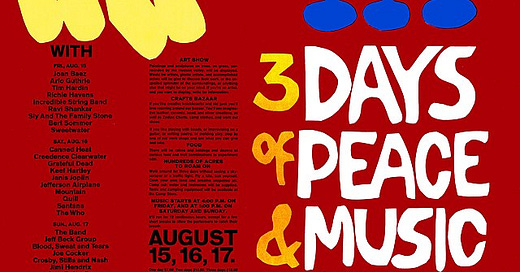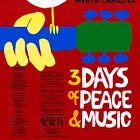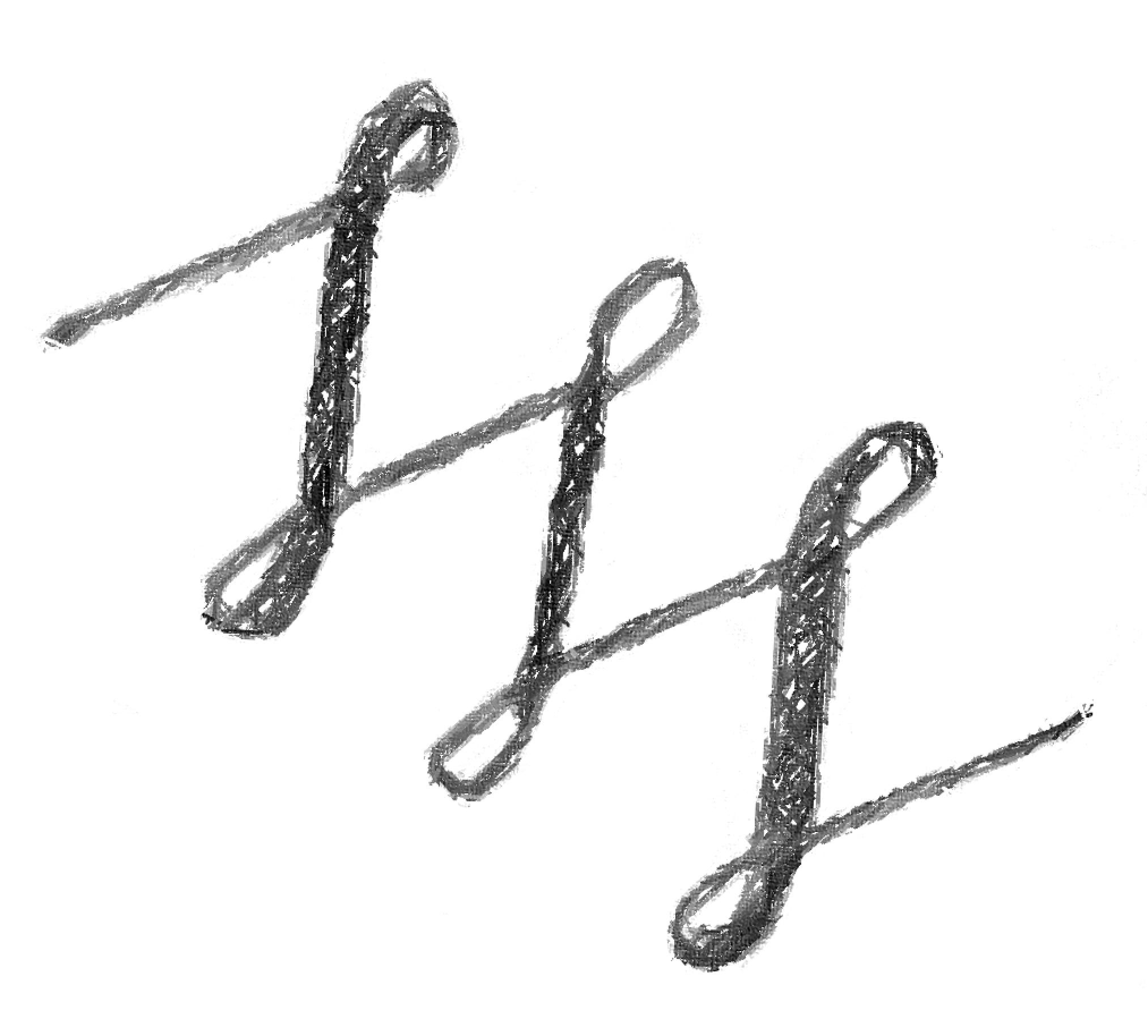Hi all,
Thank you for joining me for today’s song, “Woodstock”, by Joni Michell. If you’d like to hear the song before you read about it, I’ve included a YouTube video below the article.
Below, you’ll find my interpretation of the lyrics which are written in italics. Comments and questions are welcome. For Japanese students, vocabulary words in bold are provided in Japanese below. TOEFL (PBT) 450+, Eiken 2, CEFR B1.
(684 words)
Today I’d like to introduce a song to readers who might never heard of an event called Woodstock. Although the song itself doesn’t directly deal with a particular social issue, the event and what it represented did.
The period of the 1960s was a difficult time for the U.S. The war in Vietnam had become grown wider and more serious, the country was facing a division between those who were working for social justice and equal rights and those who wanted to keep the status quo in American society. Many young people were questioning traditional American values and decided they did not agree with the ideas of their parents who thought that the best life meant have an office job, buying a house and a car, settling down and raising a family. These young people wanted to experience a different way of life. They did it through their choices in clothing and hairstyles, their music, and sometimes by experimenting with alternative relationships and psychedelic substances.
The Woodstock Music and Art Fair was a three-day festival that was held in the summer of 1969 on a farm in Bethell, New York. The farm was owned by a man named Max Yasgur. He allowed the concert to be held there after other towns nearby refused. At the festival, many famous singers performed.
Over 400,000 people showed up, using any kind of transportation they could find. The song begins with someone walking along a road that led to the farm.
I came upon a child of God
He was walking along the road
And I asked him, “Where are you going?"
And this he told me
Said, "I'm going down to Yasgur's Farm
Gonna join in a rock and roll band
I’m going to camp out on the land
I’m gonna try and set my soul free”
Many people in the late 60s were asking existential questions, wondering about the purpose of life, their responsibility to others and to the environment (the “eco” movement began in the 1960s), and what the best way was to live one’s life. The song suggests that the best way was to get ourselves back to the garden (of Eden?), in other words, to go back to living on the land and respecting the Earth.
We are stardust
We are golden
And we've got to get ourselves
Back to the garden
The singer asks the man:
“Then, can I walk beside you?
I have come to lose the smog
And I feel to be a cog in something turning
Well, maybe it is the time of year
Or maybe it's the time of man
I don't know who I am
But you know, life is for learning”
By the time we got to Woodstock
We were half a million strong
And everywhere there was song and celebration
The next few lines reflect a wish (of military bomber airplanes turning into butterflies) and, possibly, the effects of the use of drugs:
And I dreamed I saw the bombers
Riding shotgun in the sky
And they were turning into butterflies
Above our nation
To “ride shotgun” means to ride in the front passenger seat of a car.
We are stardust
Billion-year-old carbon
We are golden
Caught in the devil’s bargain
And we've got to get ourselves
Back to the garden
There were many problems with the festival. The sound system wasn’t adequate, the traffic was backed up for for miles, and there wasn’t enough food or water. There weren’t enough toilets or medical facilities. On top of that, it rained, leaving people standing or sitting in the mud. But one of the strangest things was that the event was peaceful. People helped each other and just enjoyed the music and the experience (and the drugs).
The songwriter, Joni Mitchell, was not able to attend the festival. She was on tour, and her manager decided it would be better for her to stay there to do a TV interview the next day than to join the festival. That was how she missed this historic festival of American culture.
This week is the 55th anniversary of Woodstock.
Question:
In the last chorus, there is the line Caught in the devil’s bargain. What do you think that means?
Vocabulary
division 分裂
social justice 社会正義
status quo 現状
psychedelic substance 幻覚剤
existential 実存的
eco (ecology) エコロジー
cog 歯車
carbon 炭素
Crosby, Stills & Nash
Matthews Southern Comfort
Sources
Encyclopædia Britannica, inc. (2024, July 19). Woodstock. Encyclopædia Britannica. https://www.britannica.com/event/Woodstock
Tamarkin, J. (2023, August 19). Joni Mitchell’s “woodstock”: Behind the song. Best Classic Bands. https://bestclassicbands.com/joni-mitchell-woodstock-song-2-27-18/ Accessed 7 August 2024.











Wonderful article Louise. It is a beautiful piece of history. I live in Woodstock now. Like many, I moved up here from Brooklyn. I love its beauty, mysticism, and rich musical history. I do wish that it lived up to Joni's hopes for it. Like so many. places, the town's legacy is slowly being turned into fancy hotels and t-shirts commemorating values it had no interest in actually keeping alive. It's charm is being mined for dollars. But hey, the restaurants are good!
I was not only not old enough but a continent away too… I’ve watched so many clips from Woodstock over the years and still I wish I could have been there, it was a turning of the page in so many respects!
A new favorite Louise!! I still
Listen to Joni Mitchell too! ✌🏽X